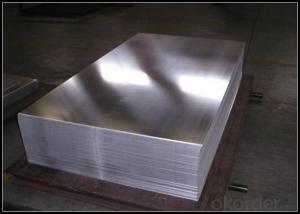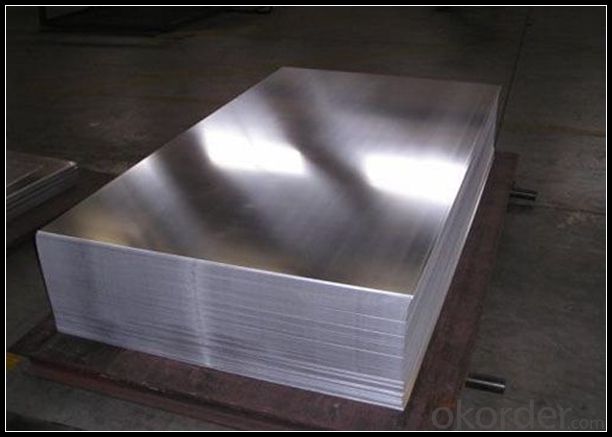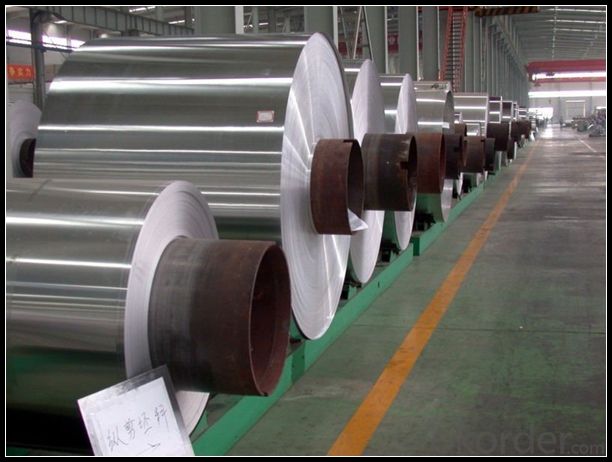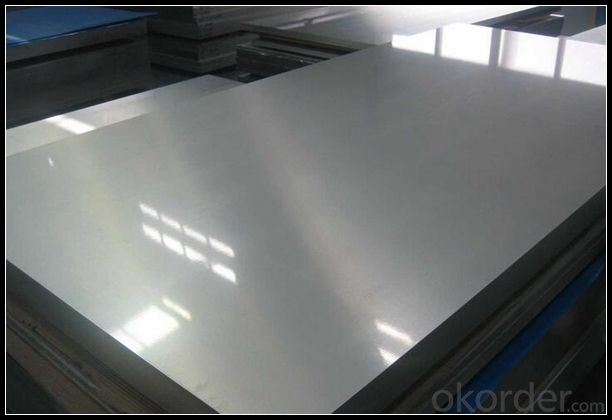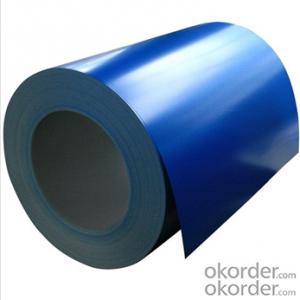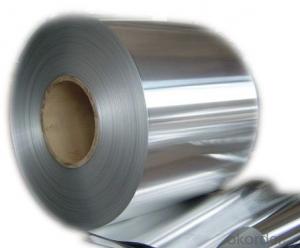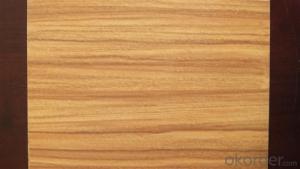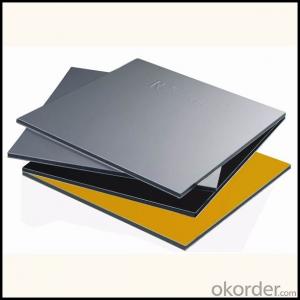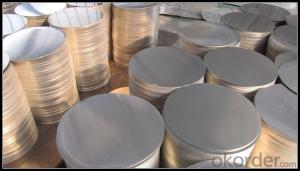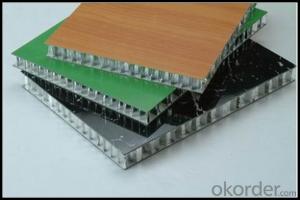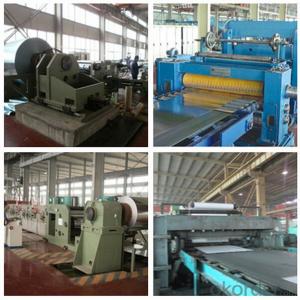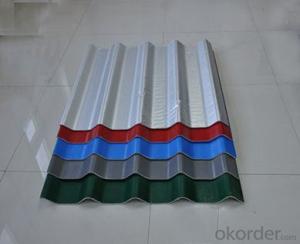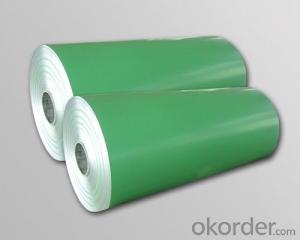Aluminum Roofing Coil - Aluminum Sheets AA1050 H14 from China Famous Company
- Loading Port:
- Qingdao
- Payment Terms:
- TT OR LC
- Min Order Qty:
- 5 m.t.
- Supply Capability:
- 2000 m.t./month
OKorder Service Pledge
OKorder Financial Service
You Might Also Like
Specification
Thickness | 0.1mm-8mm |
Popular Thickness | 0.1mm/0.2mm/0.25mm/0.3mm/0.6mm/0.8mm/1.0mm/1.2mm/1.5mm/2.0mm/3.0mm |
Width | 20mm-2500mm |
inner diameter | 76mm / 152mm |
Material | AA1050, AA1060, AA1070, AA1100, AA1235, AA3003, AA3004, AA3005, AA5052, AA5005, AA5754, AA5083, AA8011, AA8079, etc |
Temper | O,H12,H14,H16,H18,H22,H24,H26,H32,H34,H36,H38, |
Surface | Mill finish / Coated |
Packing | Export standard wooden pallets |
Payment Terms | 100% irrevocable L/C at sight or 30% T/T in advance as deposit,70% balance against the B/L copy |
Minimum Order Quantity | 5000kg |
Delivery time | 30-35 days after the receiving L/C or deposit |
2. Application of
(1) Interior: wall cladding, ceilings, bathrooms, kitchens and balconies, shutters, doors, windows,
(2) Exterior: wall cladding, facades, roofing, canopies, tunnels,column covers , renovations.
(3).Advertisement: display platforms, signboards, fascia, shop fronts.
3. Feature of
Aluminum sheet specifications:
1) Alloy : 1050 1060 1070 1100 2024 3003 3004 3105 3A21 5005 5052 5083 5754 5182 5454 5456 6061 6063 7075 8011 etc
2) Temper: O/H12/H14/H1/H18/H32/H34/H36/H38//H111/H112/H116/H321/T6/T651/T3/T351 etc
3) Thickness: 0.1mm to 300mm
4) Width:20mm to 3300mm
5)Length: ≤ 12000mm
6) Protective film can be added
7) Production Line: DC and CC production line
4. Certificate:
SGS and ROHS (if clients request, paid by client), MTC (plant provided), Certificate of Origin (FORM A, FORM E, CO), Bureau Veritas (if client request, paid by client), CIQS certificate and so on.
5. Image of Aluminum sheets
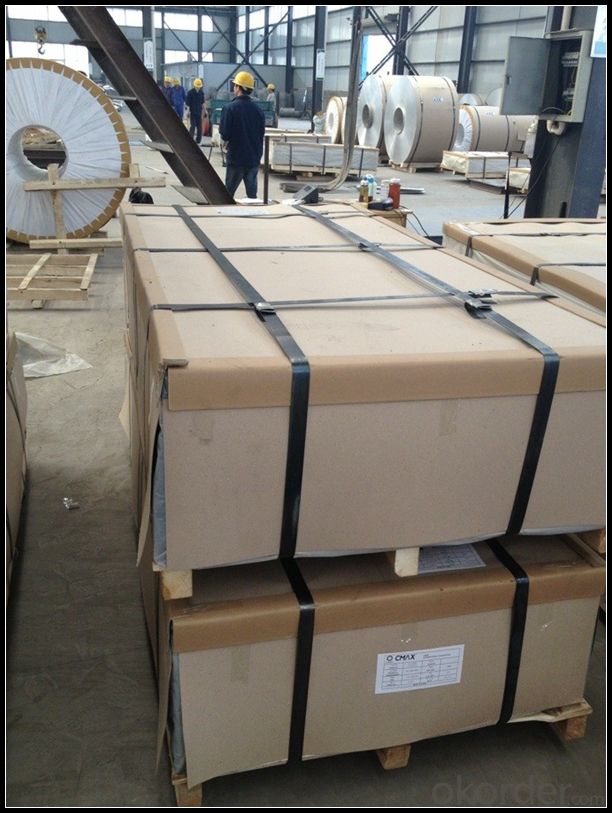
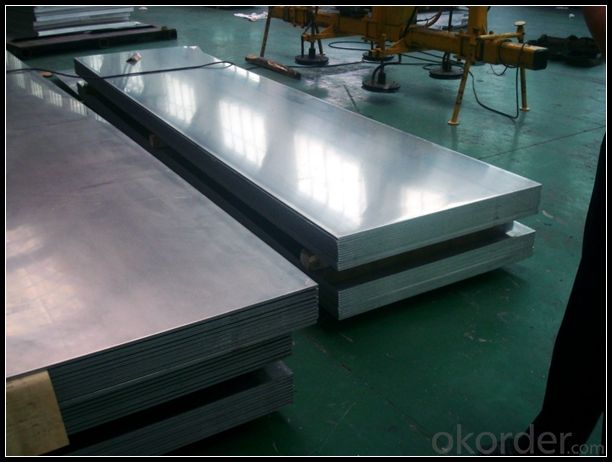
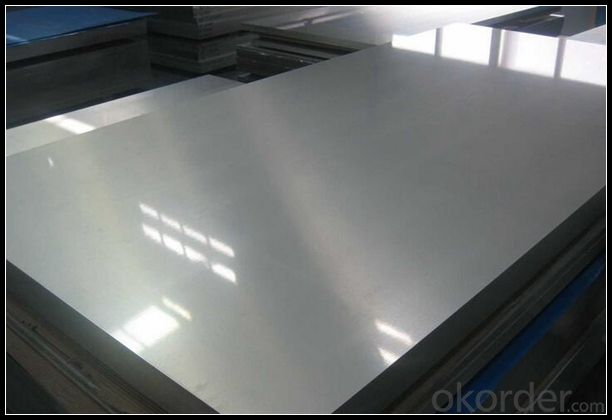
6. Package and shipping of
Eye to wall
Eye to the wall
With wooden pallet (wooden case also available)
7. FAQ
1) What is the delivery time?
Depends on actual order, around 30 to 35 days
2) What is the QC system?
We have QC staff of 20 persons and advanced equipment, each production is with MTC traced from Aluminum ingot lot.
3) What market do you mainly sell to?
Australia, America, Asia, Middle East, Western Europe, Africa etc
- Q: This question asks for methods to assess the quality of aluminum coil, which is important in industries where aluminum products are used.
- <p>To check the quality of aluminum coil, you should inspect its surface for any defects like scratches, dents, or discoloration. Measure its thickness and width to ensure they meet the specified standards. Test its mechanical properties, such as tensile strength and elongation, to verify its strength and flexibility. Conduct a chemical analysis to confirm the alloy composition and purity. Check for any impurities or inclusions that could affect performance. Finally, assess the coil's flatness and straightness to ensure it's suitable for further processing.</p>
- Q: What is the shelf life of aluminum coils?
- The shelf life of aluminum coils can vary depending on various factors such as storage conditions, protective coatings, and exposure to environmental elements. However, in general, aluminum coils can have a shelf life of several years if stored properly in a dry, cool, and non-corrosive environment.
- Q: This question asks about potential health hazards associated with the use of aluminum coils.
- <p>There are concerns regarding the use of aluminum coils, particularly in cooking and food preparation, due to the potential for aluminum to leach into food. While aluminum is generally recognized as safe, excessive intake over a long period has been linked to various health issues, including neurological disorders and cognitive impairment. However, the risk is considered low for most people, as the body does not absorb a significant amount of aluminum from food or cookware. It's important to note that the scientific community has not reached a consensus on the extent of these risks, and further research is needed. To minimize potential exposure, it's recommended to use alternative cookware materials like stainless steel or cast iron, especially for acidic foods that may increase aluminum leaching.</p>
- Q: This question is asking about the potential negative effects or hazards associated with the use of aluminum coils.
- <p>The use of aluminum coils can pose certain risks and dangers, primarily due to their high thermal conductivity and reactivity. When used in cooking or heating applications, aluminum coils can cause uneven heat distribution, which may lead to burning or melting of food. Additionally, aluminum can react with acidic or alkaline foods, potentially leaching aluminum into the food and causing health concerns such as neurological disorders and bone diseases. Moreover, aluminum coils can corrode over time, especially when exposed to moisture or certain chemicals, which can weaken their structure and pose a risk of breakage or injury. It's important to use aluminum coils appropriately and to monitor their condition regularly to minimize these risks.</p>
- Q: Can aluminum coils be used for HVAC condenser coils?
- Yes, aluminum coils can be used for HVAC condenser coils. In fact, aluminum coils have become increasingly popular in recent years due to their numerous advantages over traditional copper coils. Aluminum coils are lighter, more durable, and more resistant to corrosion. They also have excellent heat transfer properties, allowing for efficient cooling of the refrigerant. Additionally, aluminum coils are more cost-effective and environmentally friendly compared to copper coils. Overall, using aluminum coils for HVAC condenser coils is a viable and beneficial option.
- Q: Explain the distinction between aluminum coil and copper coil, highlighting their properties and uses.
- <p>Aluminum coil and copper coil are both metal coils used in various industries, but they have distinct properties. Aluminum coil is lighter, more corrosion-resistant, and less expensive than copper coil. It is often used in applications where weight and cost are concerns, such as in construction and electrical wiring. Copper coil, on the other hand, has superior electrical conductivity and is more ductile, making it ideal for electrical applications where high conductivity is required, such as in power transmission cables and wiring for electronics. Copper is also used in plumbing due to its resistance to corrosion. In summary, the choice between aluminum and copper coil depends on the specific requirements of the application, including factors like conductivity, weight, cost, and resistance to corrosion.</p>
- Q: Are aluminum coils resistant to oil and grease?
- Yes, aluminum coils are generally resistant to oil and grease. Aluminum has a natural resistance to corrosion and is not easily affected by most solvents, including oil and grease. This property makes aluminum coils a suitable choice for various applications where they may come into contact with oils or greases, such as in the automotive and HVAC industries. However, it is important to note that prolonged exposure to certain aggressive chemicals or high concentrations of oil or grease may still cause some damage or degradation to the aluminum coils over time. Therefore, it is recommended to properly clean and maintain the coils to ensure their optimal performance and longevity.
- Q: For the reaction at the anode:Al ----gt; Al3+ + 3eHowever, at the anode, oxygen are also produced and forms aluminium oxide(Al2O3) with aluminium.Are Oxygen produced by oxidation of water by electrolysis? or some reaction else?If Oxygen are produced by oxidation of water, then why it can be oxidise sinceAl ----gt; Al3+ + 3e E^0= + 1.66V2H2O ---gt; O2 + 4H+ + 4e E^0= - 1.23V(if refers to E null value) Oxygen should only be produced after all the Al have been finish oxidised.Both reaction happen at the same time? Is it possible?
- When Al is formed on the anode, it is immediately oxidized to Al2O3 because Al is very active. The oxygen come from the water. Actually, when you expose Al to the air, a layer of Al2O3 is formed and passivates the surface, this means, the surface do not continue oxidizing.
- Q: So on friday we mixed crystaline copper chloride stuffs with water to make a clear blue solution. We then put some aluminum into the solution. The solution began to heat up and there was a redish brown precipitate at the end. What caused the heat? What was boiling? How does the mass of the original aluminum and original copper chloride crystaline stuff compare with the mass of the red/brown power stuff (we strained the liquid out), and the mass of the dried up blue stuff?
- RE: Copper (II) Chloride Aluminum Lab! ? on a similar time as observing the filtrate of this lab, it incredibly is the Aluminum Chloride, what surely observations must be made approximately it? additionally, as quickly as you first pour the Copper (II) Chloride crystals into the water, is it heterogeneous or homogeneous? How approximately in case you enable the beaker sit down undisturbed for some...
- Q: Are aluminum coils suitable for electrical grounding applications?
- Yes, aluminum coils are suitable for electrical grounding applications. Aluminum has good electrical conductivity and corrosion resistance, making it an effective choice for grounding systems. Additionally, aluminum coils offer cost advantages over copper coils, making them a popular option in electrical grounding applications.
Send your message to us
Aluminum Roofing Coil - Aluminum Sheets AA1050 H14 from China Famous Company
- Loading Port:
- Qingdao
- Payment Terms:
- TT OR LC
- Min Order Qty:
- 5 m.t.
- Supply Capability:
- 2000 m.t./month
OKorder Service Pledge
OKorder Financial Service
Similar products
Hot products
Hot Searches
Related keywords
